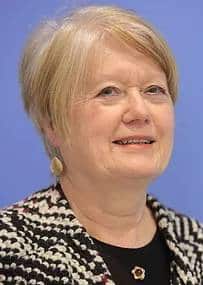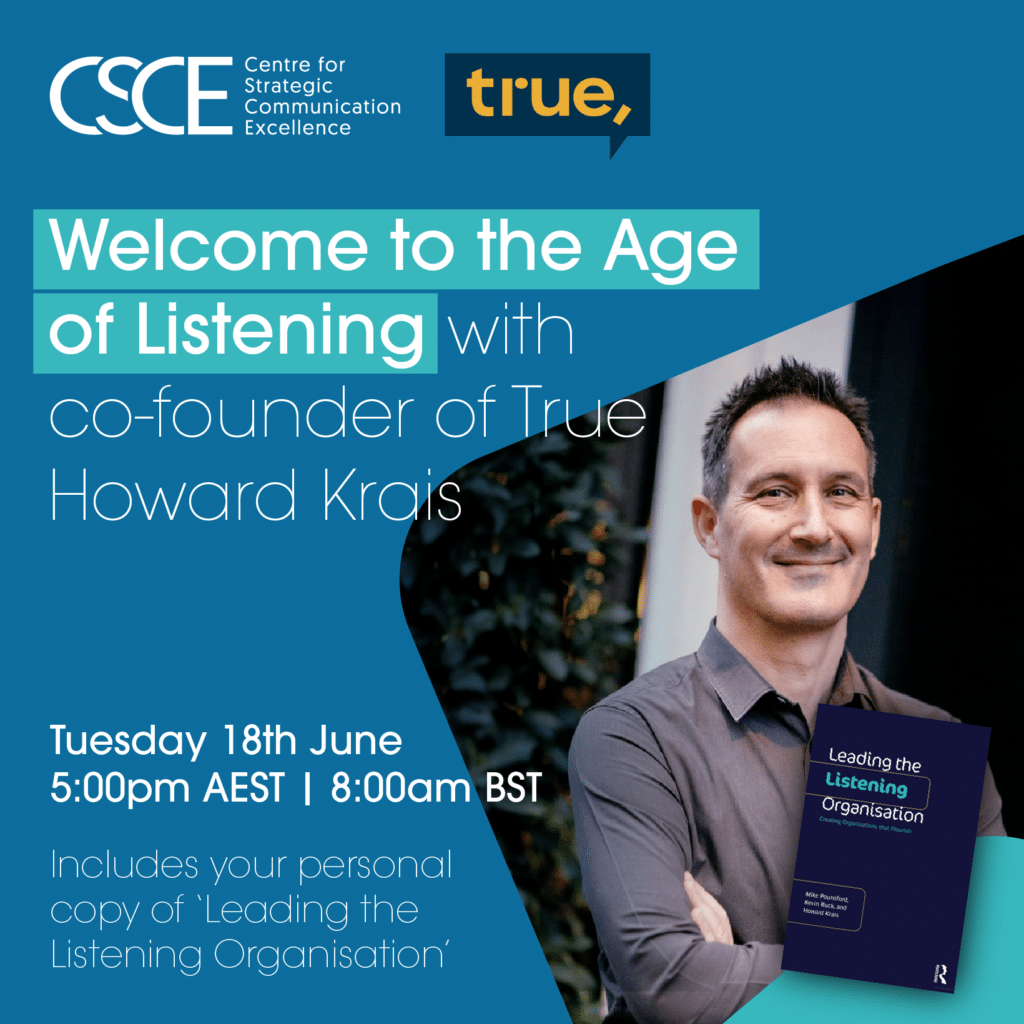Yes, perhaps the term ‘coward’ is rather strong but it does make a point. Before I moved on from my communications role, I did not appreciate that not all communicators have the same trust and respect from their management that I experienced.
Then, in my next role in communications and engagement research, I meet many communicators at all levels in a wide range of organisations. Of course, many are confident professionals, experienced and skilled who have earned the ‘trusted adviser’ position and lead the creative and forward thinking in our communication field.
At the same time, I also met others; less confident in their role, whose advice and abilities are often ignored by their management. They are frustrated – knocking on the management door without response or reaction.
So what I ask, makes the difference between these two types of communicators? Why are some so confident and others much less so? Age and length of experience may seem obvious reasons, but this is not necessarily the case: we have some great young newcomers to our field who are assured and able in their roles.
One factor could be the practice of some organisations to move their people into different positions for a few years so the role is held, not by a career professional, but by somebody from a completely different discipline. Thus, they may find it hard to be heard as their management is aware they lack experience and expertise in communications.
As we communicators like stories, I will share an example. My research revealed that the three-page email this manager was sending out to his team monthly was unread. The communications team told me that they could not tell him as he would not listen. But good communicators bring solutions as well as problems: So why not go to him having worked out the cost of his wasted time which could be used more productively with suggestions to be more appealing – punchier, better suited to online copy, perhaps based on team member interviews with him rather than the current diatribe?
I have come across this “no point, as management would not listen…” But are they brave enough to speak out – as with the example above, I have sometimes wondered if management would truly ignore clear evidence or whether those communicators lack the confidence to approach them.
But there are more fundamental issues. Now perhaps I shouldn’t liken managers to animals but I have learned from dog training that expecting refusal brings refusal while assured certainty brings positive behaviour. So here is where positive approach and body language come in. Confidence can convince even the skeptics.
Now we need to ask – what brings that confidence? Unsure communicators often focus on the channels and tools – the easy part. Good communicators become an integral part of the business by understanding its strategy and culture, making a strong business case. This is echoed by Mike Klein, Principal of Changing the Terms, who has wide international experience: “A real communicator is someone who examines why something should be communicated before proposing how it should be communicated.”
So while showing that you are in command of your craft is a basic essential, the effective communicator also thinks strategically, producing firm evidence and practical solutions rather than seeming to bring just problems and issues to the management table.
Of course the communication role can be isolating so networking through professional associations, LinkedIn groups, workshops, conferences and online webinars are opportunities to learn and share. I have been told in the past by communications people: “I’m too busy to go to that….or read that book.” Here’s another difference – confidence does not bring an end to learning – it means you are always open to fresh thinking and new ideas.
And there’s much learning out there. Seattle founder of AudienceBloom, Jayson DeMers defines the seven things good communicators always do (Forbes article). He emphasises active listening: “Your eyes are just as helpful as listening with your ears. By looking for non-verbal clues you can ascertain how someone is receiving your message.” Good advice. This is also echoed by Nancy Helldie, Senior Communications Adviser at Suncor Energy, Alberta. Helldie believes a good communicator shows empathy: “who absorbs the situation, seeks its history, listens to bridge common meaning between people and then absorbs again.”
Other innovative thinking may not seem to directly refer to communication but can be adapted, especially for one of our greatest communication challenges – change. Three distinct leadership roles are needed for change says institutional change expert Julie Battilana, professor at Harvard Business School.
The Agitator, she says, stirs the pot by articulating grievances, rallying people around a mutual desire for change. The Innovator develops a solution to address the grievances by anticipating roadblocks and coming up with alternative paths, as well as justifying those alternatives to engage people to support them. The Orchestrator spreads the solution, strategising how best to reach and work with people.
Surely here there are definite resonances with the confident communicator leadership role?
When starting this article, I was thinking at one level but advice from Dr. Rajeev Kumar ABC, consultant in organisational communication management based in Mumbai, India, made me realise there are wider upcoming issues. He points out that some communicators will not stand up for what is right and succumb to political pressures in organisations. “A communicator is an inextricable part of the whole – organisation and society and has responsibilities and obligations towards the system to which he or she belongs. A communicator’s ultimate duty is to be true to the profession that’s bound by an ethical code.” he says.
Looking at the world stage – and what the future might hold – will bring fresh challenges: ethical, political and cultural – for communicators. This makes confidence in their role ever more vital. And if you want to find advice and support – you could even get agreement and commitment in principle from management – you should look at the IABC Code of Ethics.





